new to the gluten free journey?
new to the gluten free journey?

Contents
Toggle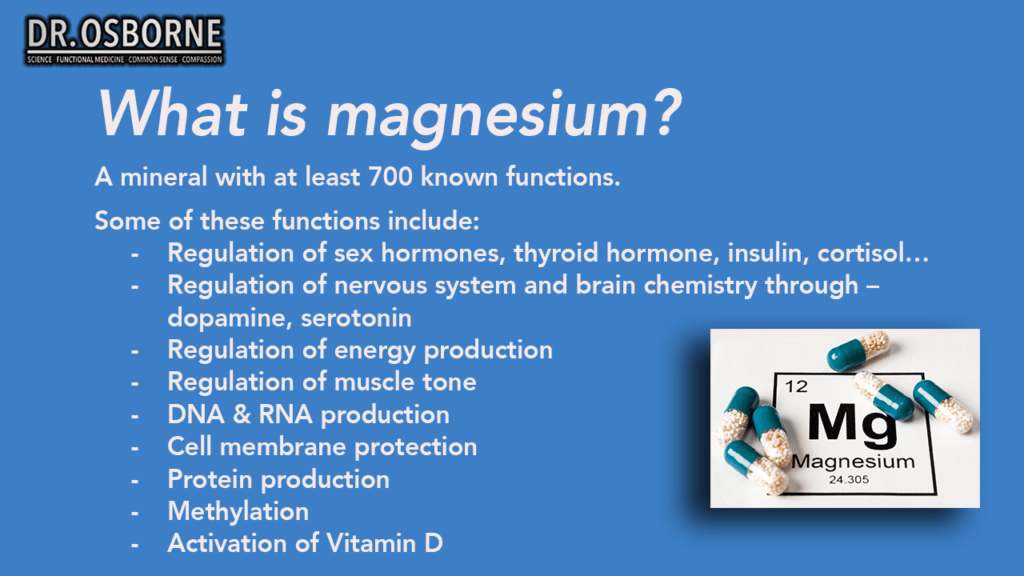 So what is this nutrient deficiency that can wreak havoc on the body? Magnesium is one of the most well-known, highly researched nutrients. It has 700 different functions, which is the most of any nutrient. Some believe that there may be more that have yet to be discovered.
While it could take a while to go through each of the 700 functions of this nutrient, here are just a few of the vital roles it plays within the body:
So what is this nutrient deficiency that can wreak havoc on the body? Magnesium is one of the most well-known, highly researched nutrients. It has 700 different functions, which is the most of any nutrient. Some believe that there may be more that have yet to be discovered.
While it could take a while to go through each of the 700 functions of this nutrient, here are just a few of the vital roles it plays within the body:
 While it is easy to turn to supplements to get the recommended intake, it is much better to rely on food. Nature has already provided the best form of magnesium that can be easily absorbed and used by the body.
Some of the most common sources of magnesium include:
While it is easy to turn to supplements to get the recommended intake, it is much better to rely on food. Nature has already provided the best form of magnesium that can be easily absorbed and used by the body.
Some of the most common sources of magnesium include:

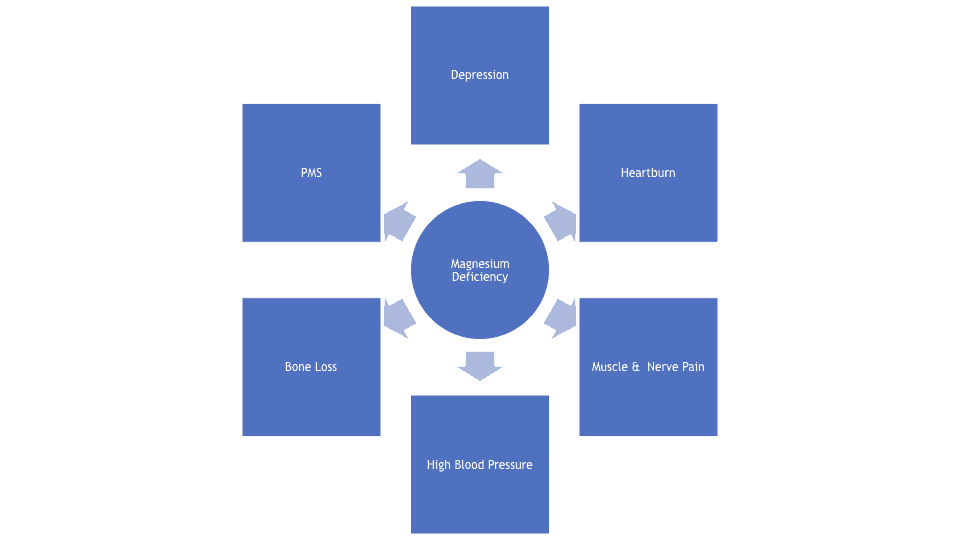 These include:
These include:
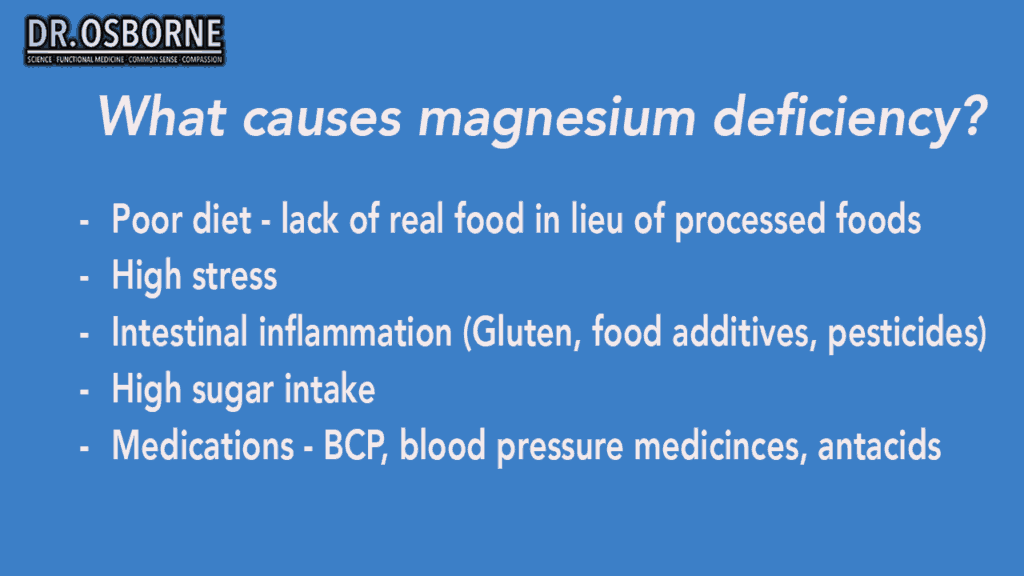 So, apart from not ingesting enough magnesium, what could be causing a deficiency? Surprisingly, one of the most common causes of a deficiency relates to the intake of processed sugar. The body requires magnesium to break down the sugar one consumes; therefore, the more sugar consumed, the more magnesium expended.
Additionally, chronic or prolonged stress, large intakes of caffeine, and even certain medications can deplete the stores of magnesium in the body. Medications that are most likely to do so include hypertension or blood pressure medication, birth control pills, and antacids when used regularly.
So, apart from not ingesting enough magnesium, what could be causing a deficiency? Surprisingly, one of the most common causes of a deficiency relates to the intake of processed sugar. The body requires magnesium to break down the sugar one consumes; therefore, the more sugar consumed, the more magnesium expended.
Additionally, chronic or prolonged stress, large intakes of caffeine, and even certain medications can deplete the stores of magnesium in the body. Medications that are most likely to do so include hypertension or blood pressure medication, birth control pills, and antacids when used regularly.
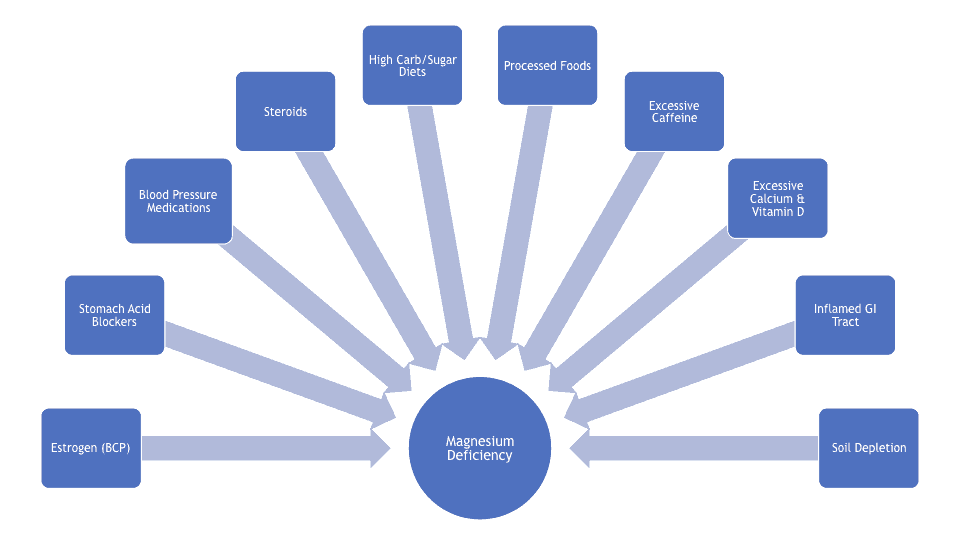
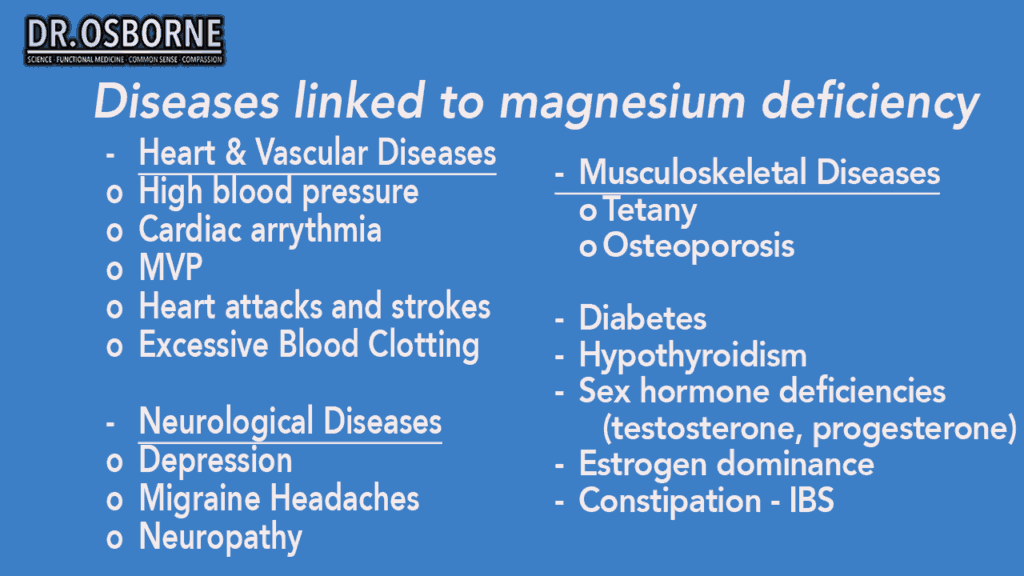 While a lack of this vitamin may not cause disease, it is linked to as many as 60 different diseases. As mentioned, because of it’s intricate involvement in the muscular, nervous, and endocrine systems, most of these diseases tie into these three categories. Some of the diseases or disorders linked to low magnesium include:
While a lack of this vitamin may not cause disease, it is linked to as many as 60 different diseases. As mentioned, because of it’s intricate involvement in the muscular, nervous, and endocrine systems, most of these diseases tie into these three categories. Some of the diseases or disorders linked to low magnesium include:
 While food should always be the first option for obtaining nutrients, there may be certain situations which require supplements. In that case, it is best to be informed on which supplements are the best absorbed and most beneficial within your body. Once finding a suitable supplement, one’s daily intake should be between 200-1000 milligrams, spread throughout the day.
There are several varieties of this type of supplement with two of the best being magnesium glycinate and citrate. Some people even enjoy magnesium oils or Epsom salt baths. This allows for absorption through the skin.
One supplement to avoid, however, is magnesium oxide, as it contains very little of the nutrient and is poorly absorbed by the body.
While food should always be the first option for obtaining nutrients, there may be certain situations which require supplements. In that case, it is best to be informed on which supplements are the best absorbed and most beneficial within your body. Once finding a suitable supplement, one’s daily intake should be between 200-1000 milligrams, spread throughout the day.
There are several varieties of this type of supplement with two of the best being magnesium glycinate and citrate. Some people even enjoy magnesium oils or Epsom salt baths. This allows for absorption through the skin.
One supplement to avoid, however, is magnesium oxide, as it contains very little of the nutrient and is poorly absorbed by the body.
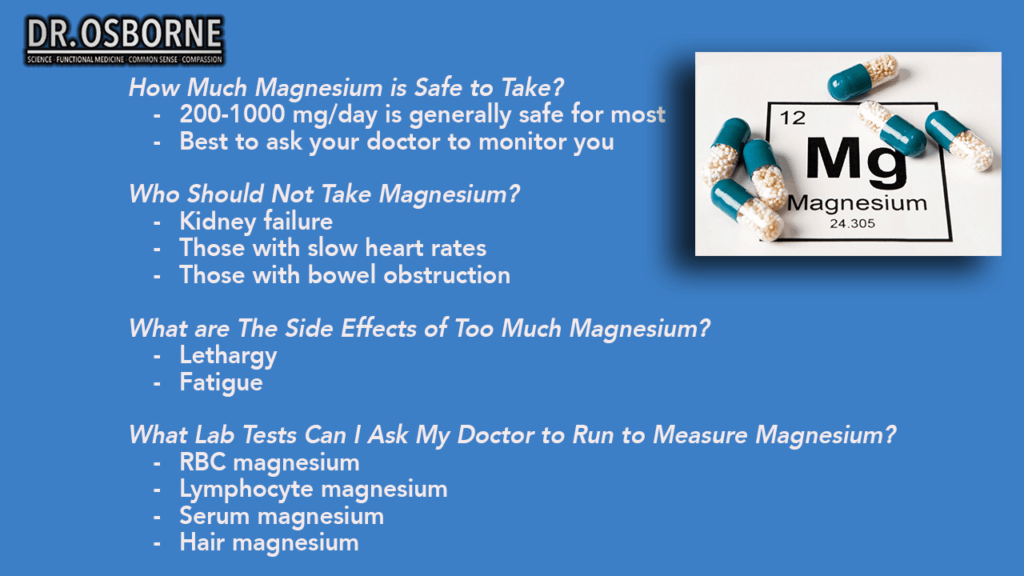
Stay up-to-date with the latest articles, tips, recipes and more.

*These statements have not been evaluated by the Food and Drug Administration. This product is not intended to diagnose, treat, cure or prevent any disease.
If you are pregnant, nursing, taking medication, or have a medical condition, consult your physician before using this product.
The entire contents of this website are based upon the opinions of Peter Osborne, unless otherwise noted. Individual articles are based upon the opinions of the respective author, who retains copyright as marked. The information on this website is not intended to replace a one-on-one relationship with a qualified health care professional and is not intended as medical advice. It is intended as a sharing of knowledge and information from the research and experience of Peter Osborne and his community. Peter Osborne encourages you to make your own health care decisions based upon your research and in partnership with a qualified health care professional.
2 Responses
Excellent information!
I have taken magnesium for a couple of years, it eliminated my cardiac arrhythmias for which I am grateful. My cardiologist was threatening me with blood thinners and a pace maker.
I am currently taking magnesium Threonate 1026 mg q day.
After reading your article I read my pulse and is slow.
I do have low thyroid function, wondering if I should reduce the magnesium dosage or change to a different type of magnesium.
I do get cramps fairly frequently.